Newspapers are just a memory. In the past, it was very difficult to get published in the newspaper, now one by one he is gone. No more waiting for deliverymen at intersections or visiting newspaper stands on the side of the road. Also no more distinctive smell of ink and paper.
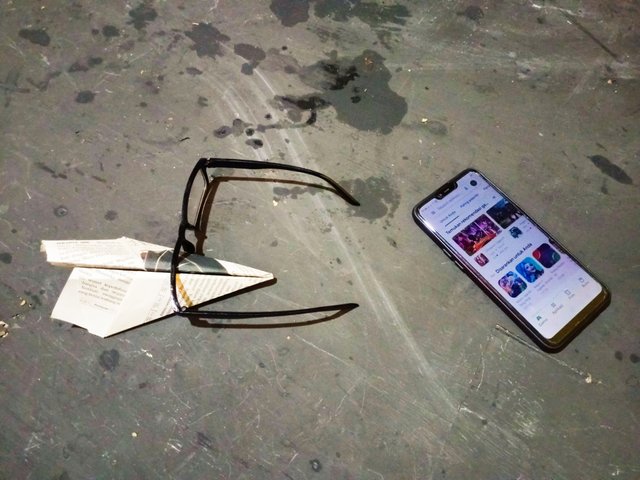
I remember about 31 years ago. At that time I was studying in Banda Aceh. As for my hometown in Trienggadeng, Pidie Jaya. Outside of writing, I am active in theater at the Aceh Cultural Park in Banda Aceh. I also observe social, culture and art. I made friends with many artists, student activists and NGOs. I often participate in various art activities and trainings on community empowerment. I also read a lot about various things ranging from art, culture, social, politics and economics. So that I have lots of ideas and materials for writing.
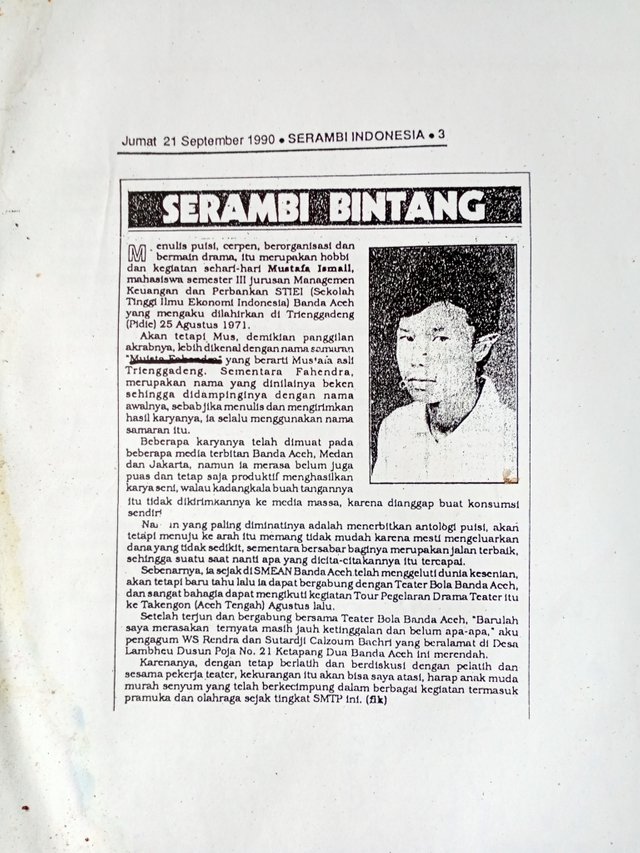
At that time, I was just intensively writing (poetry, short stories, essays, theater reviews to art exhibitions). I poetry a lot. My poetry publised in any newspaper as Serambi Indonesia, Waspada, Analisa, Republika, Kompas, Koran Tempo, ect. Every Sunday, early in the morning, I go out to wait for a deliveryman or look for a newspaper quiz. I also often write art criticisms, so there are frequent polemics in the newspapers.
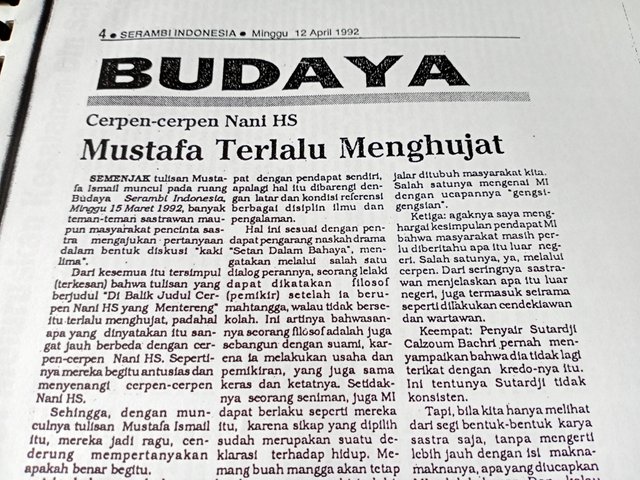
Not only to read the news, but to check if there were any works published that day. Actually, not only Sundays, but also other days. This is because there are some media whose culture pages are not Sundays. Serambi Indonesia (Banda Aceh) once published a cultural page on Tuesday. The Waspada Medan Daily is a cultural rubric on Wednesday.
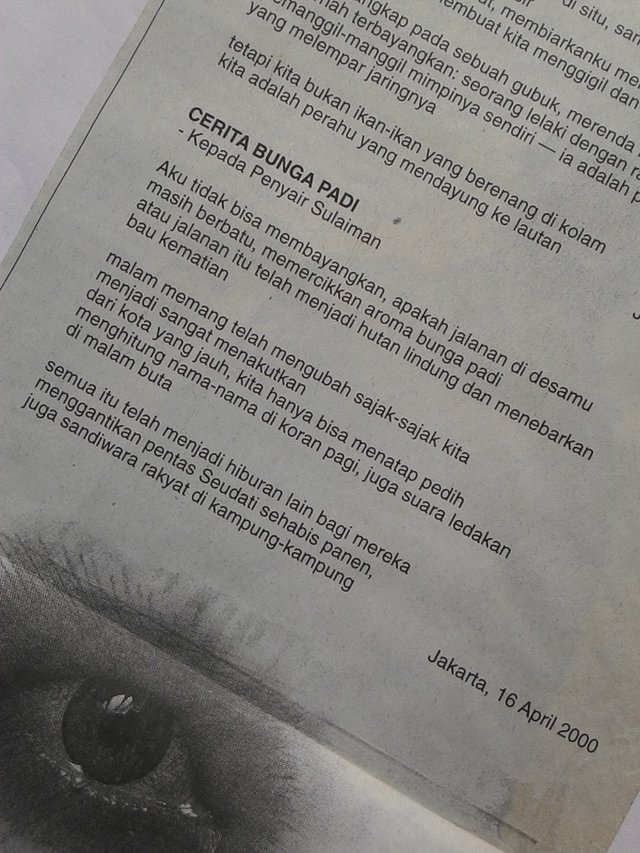
On Sundays there are also poetry and short stories, but the contents are teenage poetry and short stories. Besides that, I also write an essay (opinion), which is not published on Sundays. Even so, the atmosphere for looking for newspapers on that Sunday was very different. There is a kind of "adrenaline rush".
As soon as you see a work published, it really feels like a holiday. Hunger disappeared all day. But when the work is not published, the enthusiasm immediately weakens and it takes several hours for it to push back to normal.
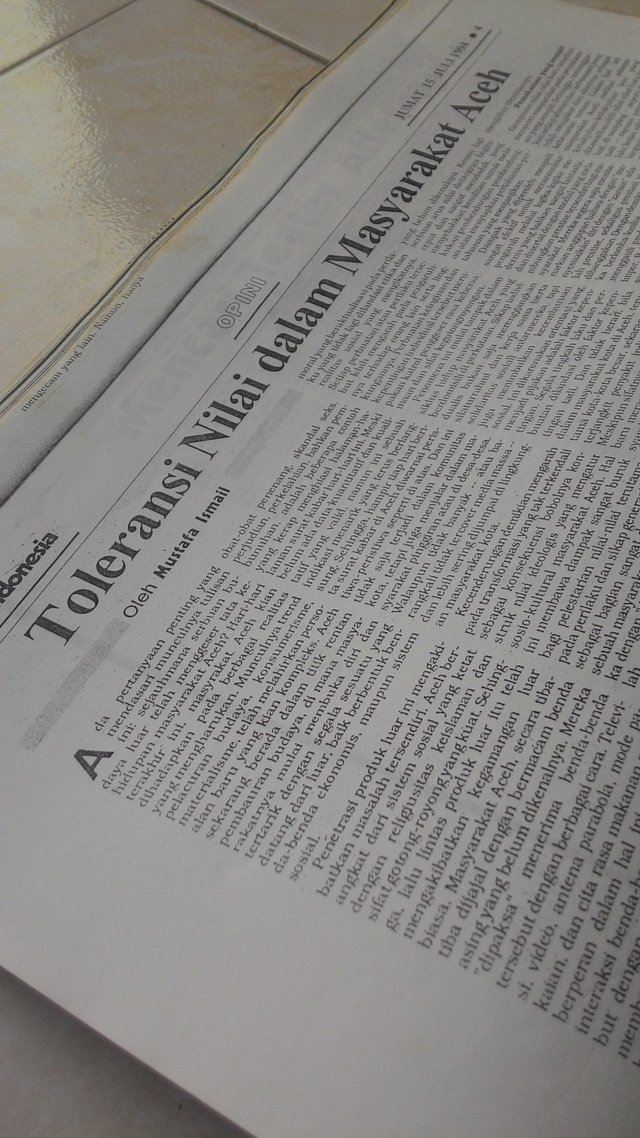
Of course it is impossible for our work every Sunday to be published in the newspapers. In addition to the large number of senders and a strict selection - to penetrate it bloody - cultural editors must also give other writers a chance.
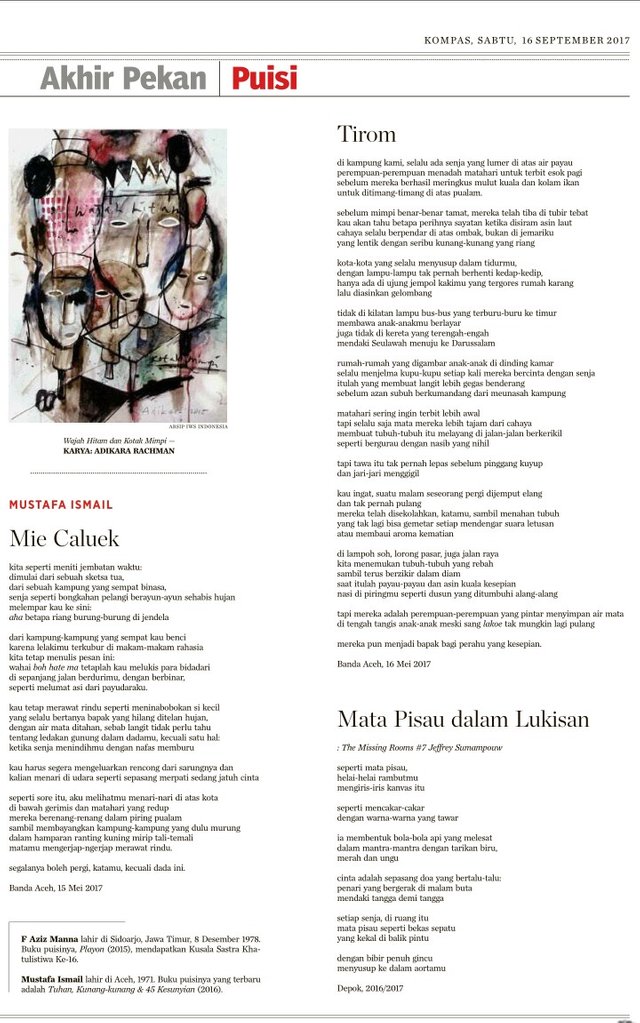
It didn't take me long to be published in several media (Aceh, Medan and Jakarta). But it took me a long time to penetrate newspapers like Kompas and Republika. My work was only published in Republika in 1997. My short stories only appeared in Kompas in 2006. But I never gave up on penetrating media that I considered "should be published there".
But now newspapers one by one are eliminating literary rubrics. Even newspapers have stopped printing and switched to digital. This is a necessity. Writers, creators, of course have to adjust to changes. Creativity can grow anywhere.
Now there are many digital platforms for writing and creating. There are online media, blogs, social media, and various writing applications. For example Steemit, Hive, Wordpress, Blogspot, Medium, Joylada, GWP, Novelme, Noveltoon, Penana, Storial.co, Sweek, Steller, Wattpad, Goodnovel, Mangatoon, Dreame, Webnovel, and others.
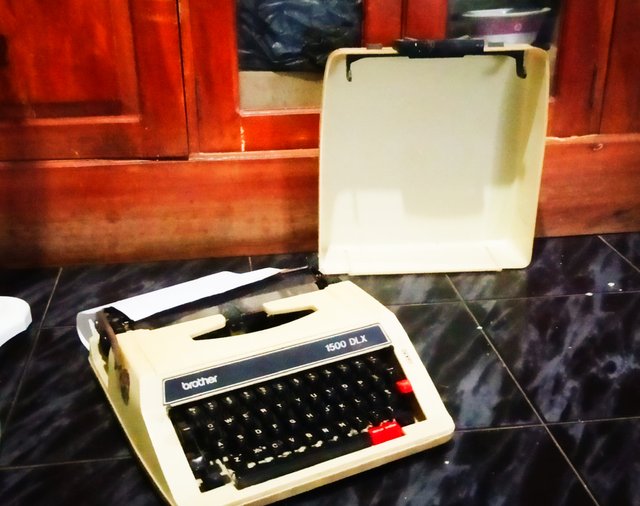
Steemit, for example. This is a very attractive platform. This is where many writers and content creators come together. They write and create a variety of content. Good content will get rewarded. Steemit also has many specialized communities, which suit each person's interests. There are writing, creativity, business, learning, photography, culinary, regional communities such as Indonesia, and so on.
So are writing platforms. The platforms are very challenging. This is not only a space for expression, but also a mine of money. Several months ago, Koran Tempo wrote that writer Liemey Iviane Lumenpouw admitted that he had received Rp. 51 million from Novelme in a month. Koran Tempo, 10 October 2020
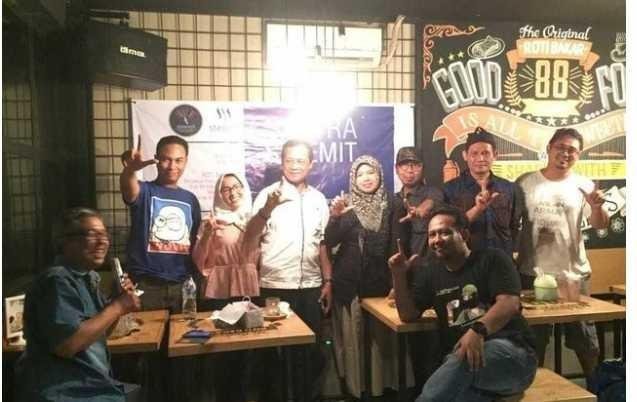
On various platforms, writers can determine whether their work is free to read or paid for. Of course, at the beginning of writing, or early chapters, writers usually make it free. Once the reader is tied up or "caught up" in the story, then a fee is charged. Curious readers will pay to follow the story.
Another successful writer is Eka Aryani, a student in Bandung. Started writing the Gulf of Alaska novel on Wattpad, it was later published, best seller, and earned huge revenues. From that money, he can buy a car, venture capital, and pay for college. Not only that. He then won the Book of The Year 2020 award from the Indonesian Publisher Association (IKAPI).
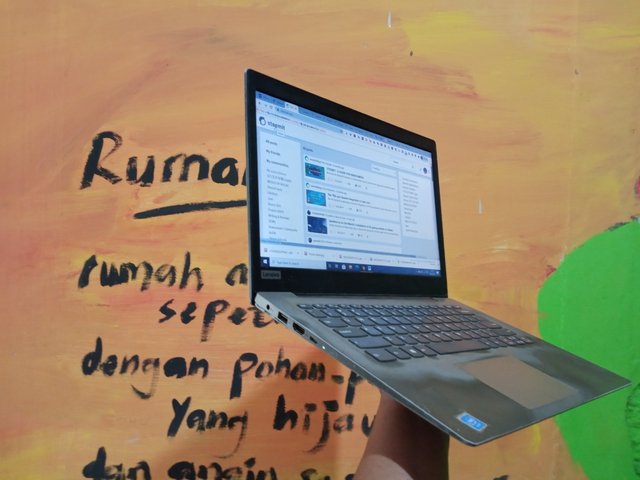
The writers were not immediately successful. They started from scratch, fighting "tooth and nail" - just as the previous writers "bled" through the media editor's selection wicket. The difference is, the struggle of millennial writers is to reach readers.
How about quality? This is always a debate. As Pak Manneke Budiman, lecturer at the Faculty of Cultural Sciences, University of Indonesia, said on my Instagram, "Classic issues since the time of Plato: what is literature and what is not? What is good and bad literature?"
The writer's job is to write well and keep learning to make the work better. Happy writing.
MUSTAFA ISMAIL,
Jakarta, Indonesia
#steemit #steem #writing #newspaper #steemsea #aceh #betterlife #thediarygame #zzan #steemcurator01 #steemcurator02 #photos by: mustafa Ismail